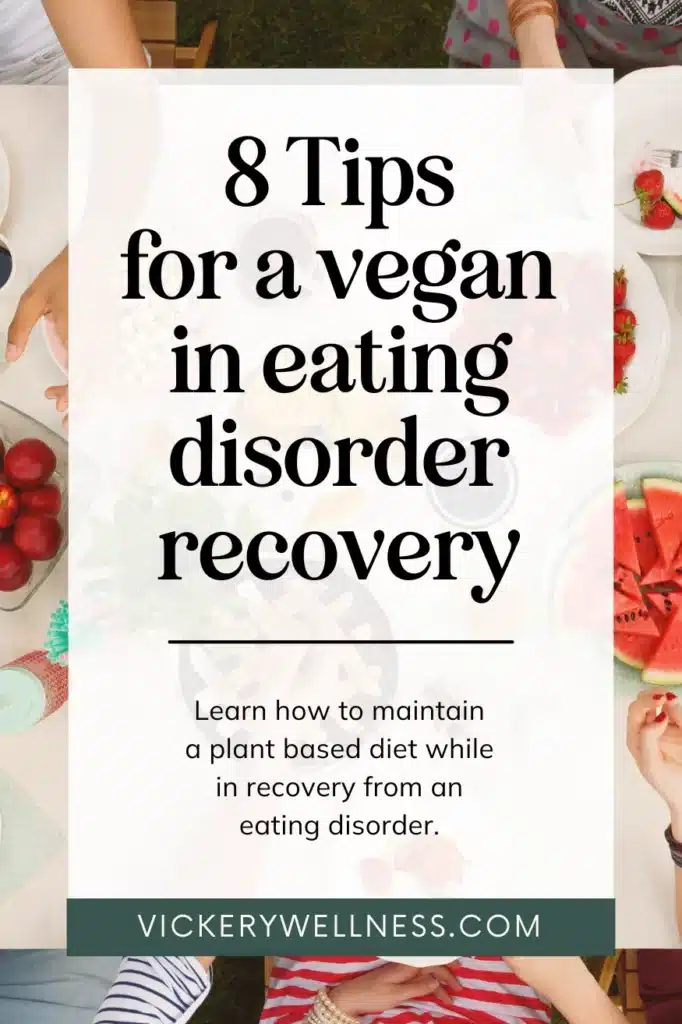
Being a vegan in eating disorder recovery can feel very conflicting at times.
With increasing concern for the state of our planet on the rise, more and more people
are turning to veganism. Animal agriculture is responsible for almost 15 percent of the total global
greenhouse emissions, so the increase in individuals’ consciousness about the connection between
food and sustainability is exciting (Source).
While veganism is another great way for us to show love to our planet it can sometimes be misunderstood— and sometimes even misused.
According to the American Psychiatric Association, “Eating disorders are behavioral conditions
characterized by severe and persistent disturbance in eating behaviors and associated
distressing thoughts and emotions” (Source).
In other words, it is the individual’s pattern of thinking that characterizes an eating disorder. Eating disorders can often manifest themselves in quick-fix diets such as “low-carb” and “low-fat”. While making subtle lifestyle changes and changes to your diet is not always a bad thing if the changes are
motivated by obsessive and distressing emotions concerning the size or appearance of your
body then there is an issue.
At first glance, plant-based eating can take on an appearance similar to a fad diet that could give rise to an eating disorder; however, when viewed through a more mindful and loving lens, veganism can be a positive influence in your life and in the lives around you.
If you are vegan and working on recovery from an eating disordered or general
disordered eating habits please consider the eight following tips to ensure your recovery is safe
and sustainable.
8 tips for a vegan in eating disorder recovery
Reframe your thinking
First things first, remember that nutrition is a form of self-love!
Your body does so much for you on a daily basis and it needs fuel. When recovering from an eating disorder it is essential to get away from the idea that food is the enemy. Try to view choosing plant-based foods and products as just another way to show yourself (and the planet) love!
It is also important to remember your intentions. Why did you go vegan in the first place? Do you love animals and want to champion animal rights? Do you love nature and want to do your part in protecting the planet?
It is easy for disordered eating habits to be masked under the guise of veganism, so revisit your intentions often. Remember that veganism is a lifestyle rather than just another diet.
Consider your nutritional needs
While a well-planned vegan diet can definitely provide you with all the nutrients you
need, nutrition can still sometimes be tricky— working with a dietitian is a good idea to make
sure you are not missing out on any important vitamins and minerals during your recovery and
after. Also, in your first few months of recovery getting routine blood work done is not a bad idea
just to cover your bases.
Eating a wide variety of foods is one of the best ways to make sure you are getting all
the vitamins and minerals you need. Below are some key nutrients and how to get them
following a plant-based lifestyle.
● Vitamin B12 :
○ Nutritional Yeast ( a yummy “cheese-like” seasoning)
○ Tofu
○ Tempeh
○ Fortified Plant Milk
● Calcium:
○ Tofu
○ Fortified Plant Milk
○ Legumes
○ Chia and Flax seeds
○ Almonds
● Iodine:
○ Strawberries
○ Leafy Greens
○ Iodized Salt
● Iron:
○ Legumes
○ Tofu
○ Tempeh
○ Spinach
Do not be afraid of volume
A large plate full of food can sometimes feel mentally uncomfortable when you are
recovering from a restrictive mindset. This is a great time to remember that food is your friend
here, not the enemy.
While many plant-based foods are high in nutrients, they can sometimes be lacking in calories. This means you may need to eat larger portions of plant-based foods to feel full. In other words, fill up that plate! And of course, remember to trust your body.
It’s better to replace foods than eliminate
Eliminating foods from your diet can often feel restrictive and lead to disorder eating
tendencies. While eating plant-based does mean the avoidance of animal-derived foods, it does
not mean that you cannot have similar tastes and textures in other ways.
For instance, instead of just not having burgers anymore, swapping a beef burger for a veggie burger is a pretty accessible option since veggie burgers are getting to be more and more popular at many
restaurants.
Also— you cannot forget the fact that vegan ice cream exists!
Ultimately, do not be
afraid to indulge in vegan versions of your favorite comfort foods!
Have fun with it!
Try to fall back in love with food!
Eating plants does not have to be boring
There are so many plant-based foods and recipes that you might not have tried yet! Cooking and baking can be a form of self-care and a great activity to help heal your relationship with food. You can also
look to your community for inspiration— next time you are at your local bookstore, page through
a vegan cookbook that catches your eye. You will be surprised by all the creative ways people
have learned to add flavor and flair to plant-based meals. Not to mention the endless amount of
recipes available online.
Do not be hard on yourself
Just like most things in life, veganism is on a spectrum. Life is life and do not let the
pressure to be perfect get in the way of your recovery. Just being open to the idea of
plant-based alternatives is more than enough. At the end of the day, how you feel mentally and
physically is what is most important.
Be cautious of influencers
We, unfortunately, live in a society plagued by harmful diet culture and the promotion of
disordered eating habits are everywhere.
Fatphobia and orthorexia exist in the vegan community as it does in many online spaces. While it is good to look for inspiration online, be wary of the information you decide to trust. If an influencer is demonizing sugar or carbs, it might be a good idea to unfollow them.
Getting your information from a registered dietitian is best, especially during recovery. Some of my favorite weight-inclusive plant-based dietitians are Lauren Sauer at The Plant-Based Remedy and Taylor Wolfram.
Learn more about intuitive eating
A great way to connect with your body and avoid restriction is through intuitive eating.
Intuitive eating is an anti-diet approach that focuses on how food makes your body feel. To learn
more about intuitive eating check out “How Health at Every Size and Intuitive Eating Work
Together”.
In short, you do not have to give up veganism in order to recover. Stay true to your
values and kick restrictive eating to the curb. You got this!!
Guest post was written by UGA Student, Lillian Garner
Hi there!
My name is Lillian Garner and I am a student at UGA studying Dietetics.

I will be entering my fourth year at UGA this upcoming fall and I have had the absolute pleasure of learning from Courtney at Vickery Wellness for my summer practicum.
With graduation only two semesters away, I have really been feeling the excitement to continue my education at the graduate level and complete a dietetic internship program to one day become a weight-inclusive registered dietitian.
I enjoyed creating this list of tips for recovering from an eating disorder while vegan. As
someone who has struggled with disordered eating during their plant-based journey, I hope
these tips help!
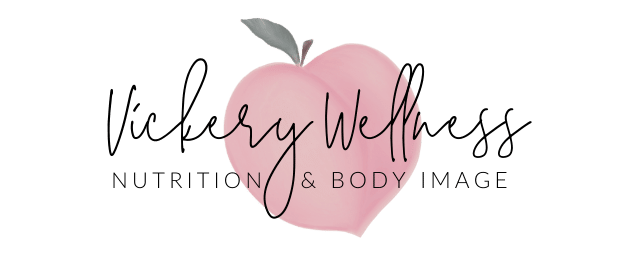
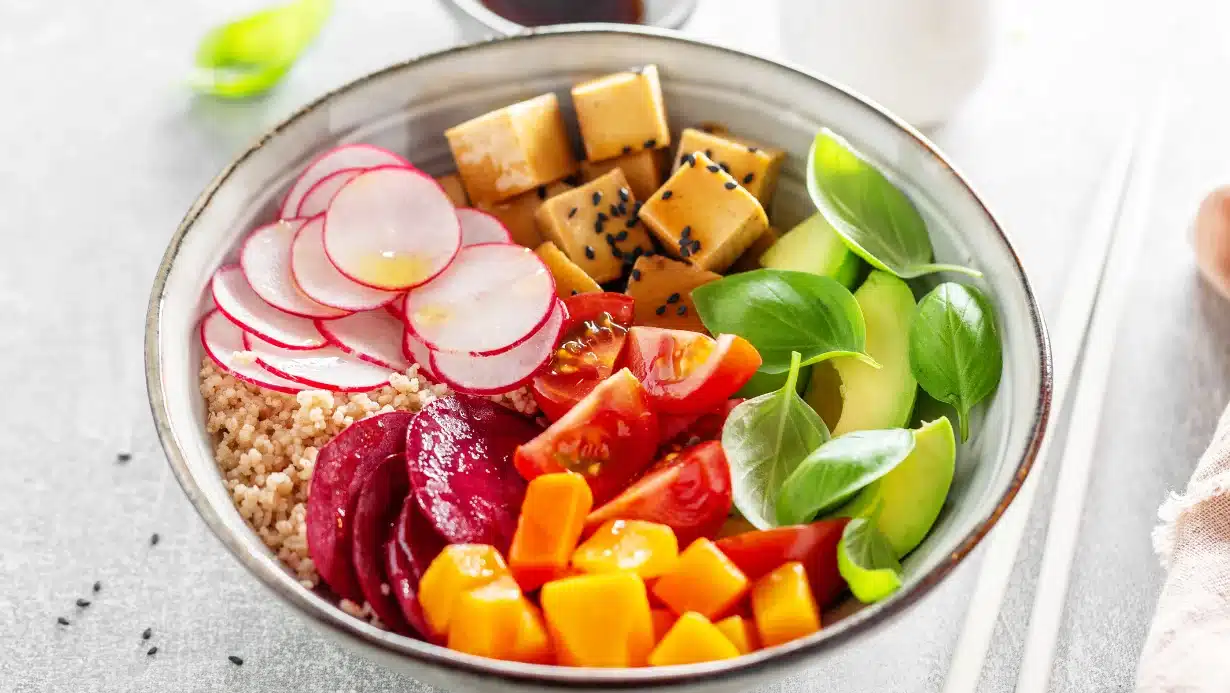

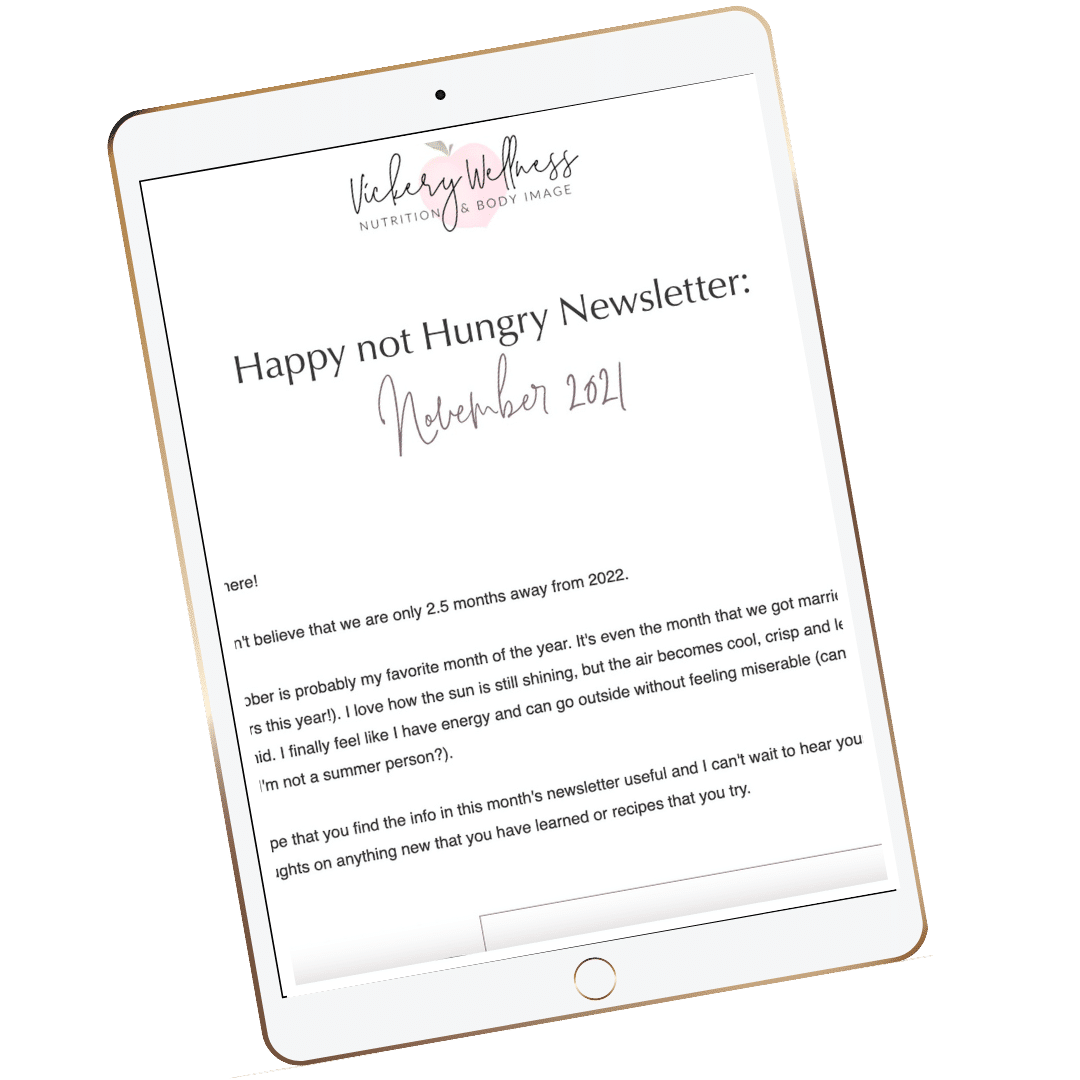


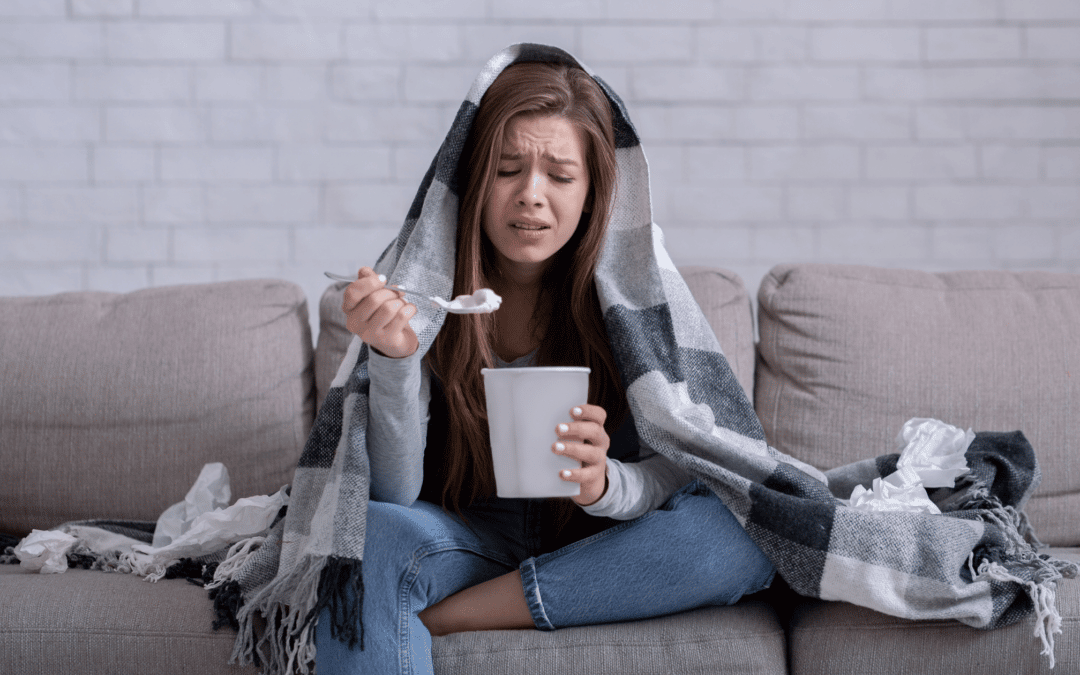

0 Comments